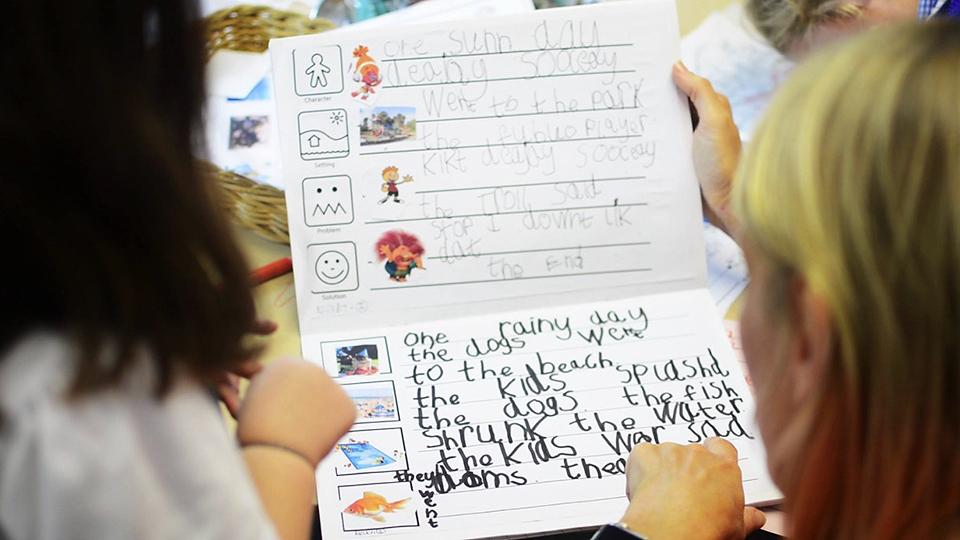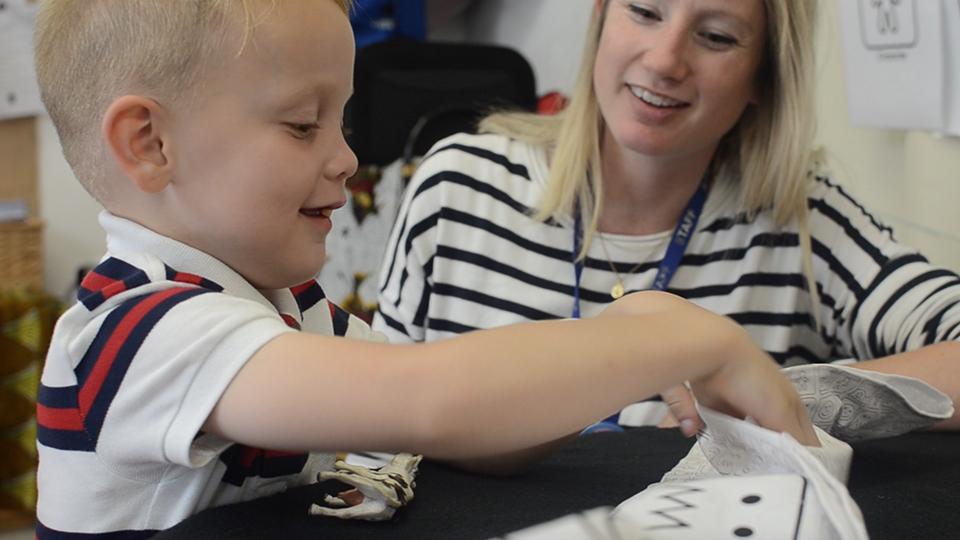Story-telling helps boys close ‘literacy gap’
Primary page content
A story-telling approach can help boys aged 2-5 years old catch up with the literacy levels of girls in the same class, research by Goldsmiths, University of London has found.

Tales Toolkit helps children tell their own stories
Tales Toolkit is a storytelling programme, currently used for children up to age seven in more than 120 schools across the UK and eight countries worldwide, that encourages imagination and creativity. It provides schools with child-led resources based around symbols to represent story structure of character, setting, problem and solution.
After a year, literacy scores showed boys learning with Tales Toolkit had closed the ‘literacy gap’ with girls by 62%. The research suggested there was no longer any statistically significant difference between boys' and girls’ scores. By contrast in the group not using Tales Toolkit boys saw the literacy gap with girls widen by 22%.
Schools using Tales Toolkit reported that children improved across all seven early years learning target areas and enjoyed lessons more. Overall, the analysis showed that both boys and girls in classes using Tales Toolkit demonstrated progress in areas such as communication and language, creativity, and improved social-emotional skills typically around three months ahead of peers in classes not using the approach.
Dr Alice Jones Bartoli, author of the report and Director of the Unit for School and Family Studies at Goldsmiths, said: “This is the first stage of our evaluation of this child story-telling programme for schools, and the results are extremely positive and encouraging. Our research suggests that Tales Toolkit can have benefits for all children, but is particularly useful for helping boys to engage with and improve skills associated with developing literacy and creativity."
Kate Shelley, a former teacher who founded Tales Toolkit, said: “Tales Toolkit allows teachers the freedom to be creative and fun with their children. The progress in all early years learning was substantial and demonstrates the value of learning in a way which is meaningful and based on children’s interests.”
Dr Julian Grenier, Headteacher at Sheringham Nursery School and Children’s Centre in Newham and a National Leader in Education said Tales Toolkit helped children make quicker progress: “We see children joyfully sharing their ideas and stories with practitioners and with their parents. The gains in confidence and enjoyment have been striking.”

Boys learning with the approach showed improved literacy scores and engagement with lessons.